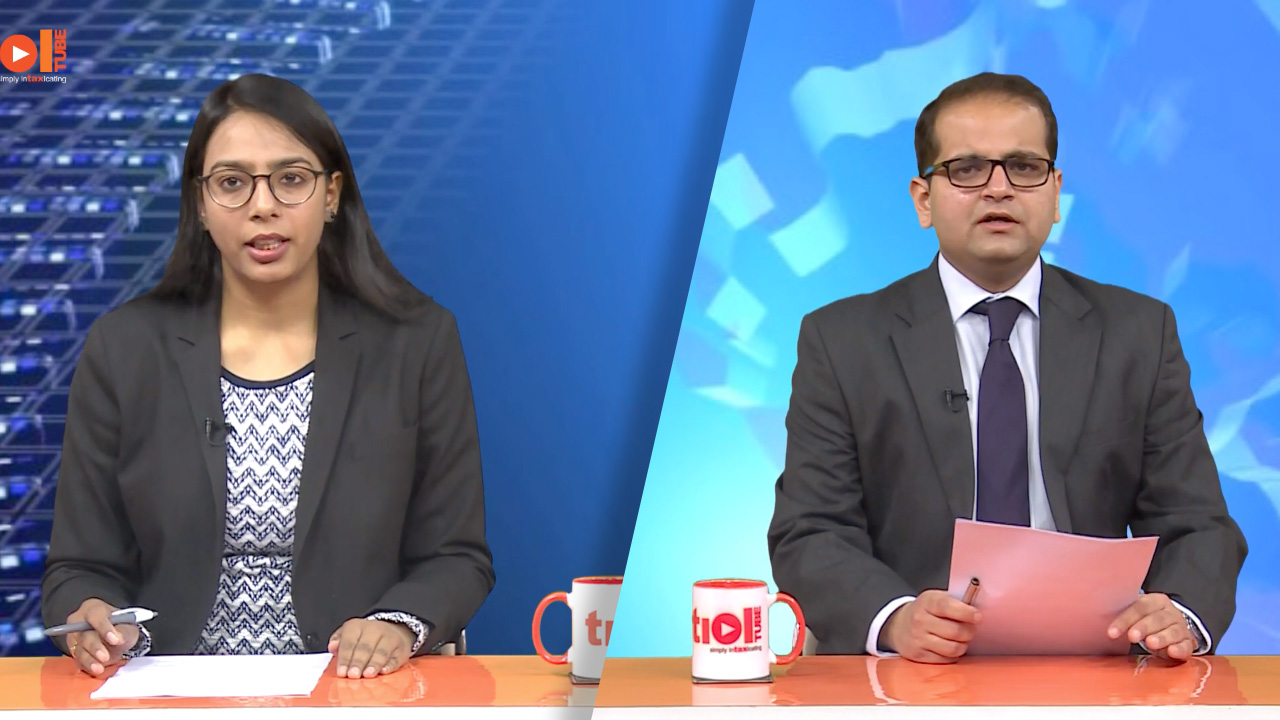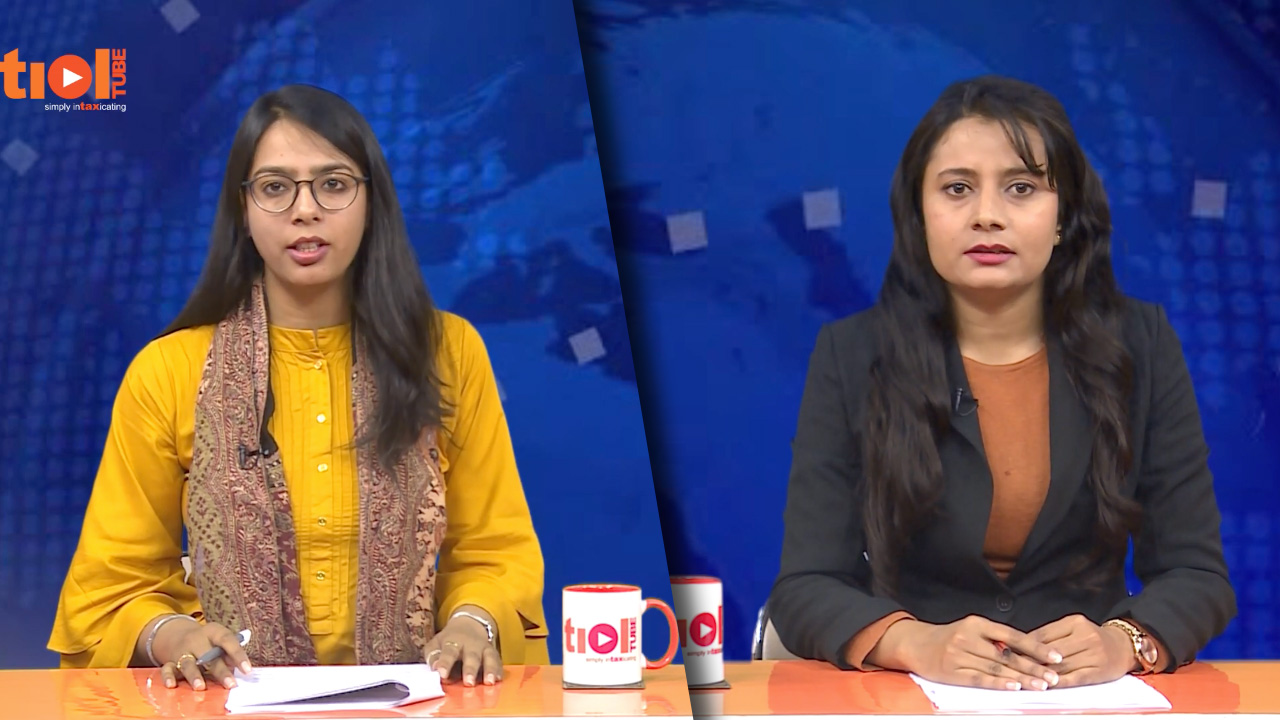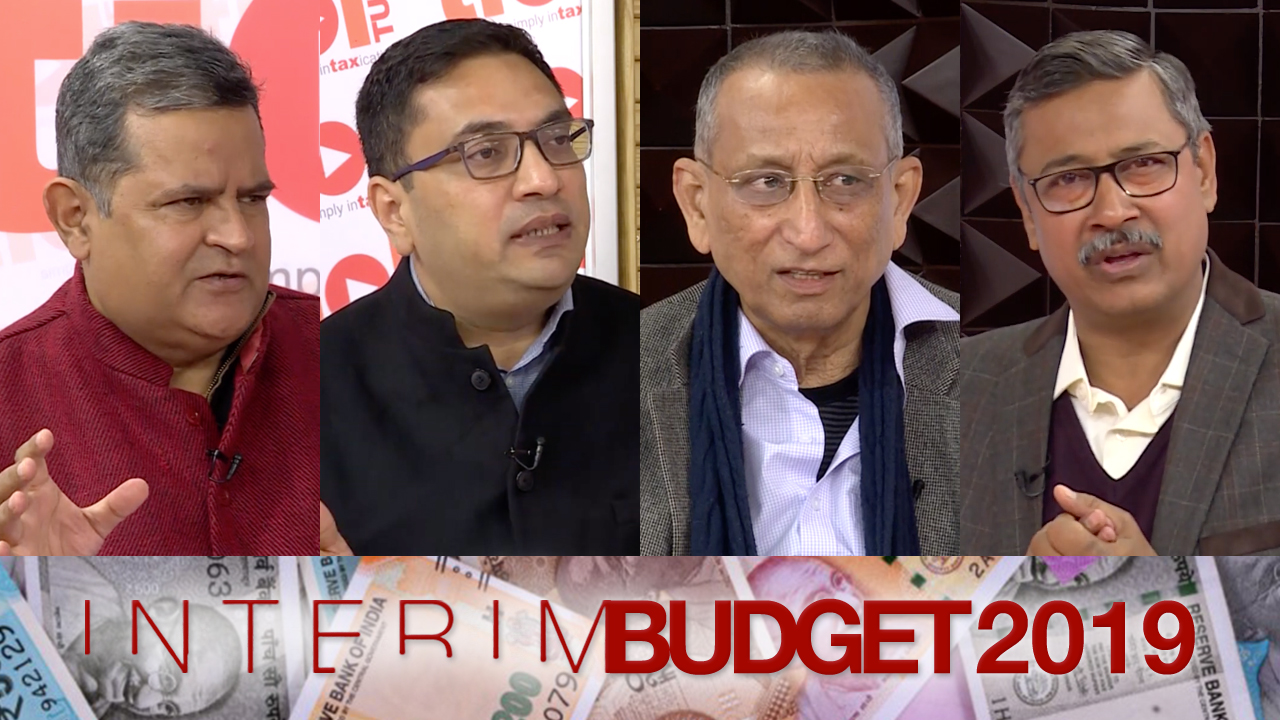|
SERVICE TAX
KTV Oil Mills Vs CGST & CE
ST - The assessee is engaged in manufacture of edible palm oil - They were refining crude edible palm oil and selling the same under their own brand name ‘ROOBINI’ - They also refined crude edible palm oil belonging to others, affixed their brand name ‘ROOBINI’ on the packages and collected brand royalty commission of Rs.100/- per MT from such clients - Department took the view that the amounts so received are exigible to service tax as they fall within the scope of ‘Intellectual Property Service’ - The service tax demand on Intellectual Property Right has also been conceded for normal period - The said demand has already been confirmed and the extended period has been set aside by Commissioner (A) against which the appeal filed by Department was dismissed on monetary grounds by Tribunal - It is not the case that assessee had informed the department about these transactions in ER-I returns - This being so, the extended period, can very well be invoked and hence the entire demand of service tax with interest thereon is not being interfered with - However, taking into consideration that the issue was interpretational and there was reasonable cause for the failure to pay tax, the penalties imposed are set aside - Coming to the demand under C&F Agent Service, following the ratio in Kulcip Medicines (P) Ltd. - 2009-TIOL-202-HC-P&H-ST, the demand is unsustainable and same is set aside: CESTAT
- Appeals partly allowed : CHENNAI CESTAT
2019-TIOL-585-CESTAT-DEL
Dexterous Products Pvt LTD Vs CCE & ST
ST - The assessee is engaged in business of manufacturing and processing of maize, rice, channa and wheat products - From the flour of these products including macca (maize), sooji and atta are produced and are sold by assessee - They had filed a refund claim on the ground that they have erroneously paid the service tax on transportation of said agricultural produce/ food grains under reverse charge mechanism as the same was exempted as per Notfn 25/2012-ST - The said Notfn was amended vide Notfn 03/2013 requiring no service tax to be payable on transportation of agricultural produce/ food grains however the said refund claim was rejected on various grounds - The processing done upon maize to extract sooji as well as atta is same and the processing is nothing more than grinding which is possible at the cultivator or the producer end - Though grinding may be a process of manufacture as far as the marketability thereof is concerned - But for the purpose of impugned exemption available towards GTA service for transporting agricultural produce, this process does not make any difference - Resultantly, both the products though acquire a distinct marketability but retains the essential characteristic of the derivatives of the agricultural produce i.e. maize - The Notification as exist on date is found to be mere explanatory in nature without extending the scope of initial Notification and perusal makes it clear that the intention of Notification is not at all to distinguish the products as that of sooji or atta of any food grains - There is no difference between the two products - The only difference is that one is coarser and the another is finer - However, they both still are essentially connected to the main agricultural produce/ food grain i.e. maize - Hence, the exemption available under impugned Notification is equally applicable to maize sooji as is applicable to maize atta.
Coming to the plea of claim being time barred, Section 11B of Central Excise Act is relevant - It is not the mistake of fact but the mistake of law that the Notfns extending exemptions to assessee were not into his notice - Otherwise also, distinguishing feature for attracting provisions under Section 11B is that levy should have the colour of validity when it was paid and only consequent upon interpretation of law or adjudication, the levy is liable to be ordered as a refund which is again not the fact for the present case - The levy herein was not valid, in view of assessee's product being an exempted good towards service tax liability on GTA - The Adjudicating Authority has committed an error while considering the claim as time barred due to non applicability of Section 11 B.
Finally, coming to the rejection on ground of no production of documents, nor of any evidence, it is opined that the absence of document is a mere procedural lapse - Harsh penalty as that of denial of refund that too with the imposition of interest and penalty is not justifiable specially when the assessee was not liable to deposit the amount which has already been deposited by him duly in appropriate time: CESTAT
- Appeal allowed : DELHI CESTAT
Cawnpore's AA Travels Wing Pvt Ltd Vs CC, CE & ST
ST - During the relevant period, the Revenue noted that the assessee provided services covered under Air Travel & Air Tour Operator service - It opined that some amount of miscellaneous income shown in the assessee's books of accounts, was liable to be added to the taxable value for the services covered under these two heads - SCN was issued in this regard & culminated into adjudication orders.
Held - The Revenue could not establish that such amount was collected for providing any specific service - Just because some income is reflected in the books of account, it cannot be assumed that it was received for provision of services - The Revenue is obliged to examine the reason for which the assessee received such income, identify the service for which it was received and also look into other aspects like abatement & exemption, before concluding whether or not such receipts are liable to tax - As no such exercise was carried out, the SCN can be said to be based on presumption, rendering it to be unsustainable: CESTAT
- Assessee's appeal allowed : ALLAHABAD CESTAT
CENTRAL EXCISE
Mando India Ltd Vs CGST & ST
CX - The assessee-company is engaged in manufacturing break assembly and shock assemby- During the relevant period, the Revenue alleged that the assessee cleared input goods on which Cenvat credit had been availed, but without reversal of credit & without payment of Excise duty - It was also alleged that certain final goods had been cleared to customers without payment of Excise duty - The Revenue also alleged that the assessee received certain goods from its customers as rejected goods & availed credit on them and that in some cases, the rejected finished goods were cleared as scrap, without payment of differential amount of duty - It was also claimed that the assessee manufactured certain tools for one customer, issued invoices, but failed to pay the requisite amount of duty - Hence on these counts, duty demands were raised with interest & penalty was imposed.
Held: A) Regarding the demand raised on account of unused inputs being trasnferred to the assessee's warehouse without reversal of credit, it is seen that there is no excess credit availed than that is relatable to the invoices corresponding to the procurement of inputs - When the inputs were brought to the factory since credit is not availed, there is no need to reverse credit u/r 3(5) of the CCR 2004 - The credit is availed only when the full quantity of inputs are used for manufacture - Hence the assessee is not required to reverse any amount of credit - There is no loss of revenue from such acts & the same is only a procedural infraction - Hence the demand raised on this count cannot sustain - B) Regarding the demand raised on rejected goods returned by the customers, the exigibility to tax in such cases stands settled by the Tribunal in Tube Investments of India Ltd. Vs. Commissioner of Central Excise, Chennai - As the assessee reversed credit on rejected goods under Rule 16, no further duty needs to be reversed - Hence the demands raised on this count are not tenable - C) Regarding duty demanded on goods supplied to customers for periodical sample testing, it is seen that the assessee is liable to discharge duty when goods are cleared from factory for testing purposes - As the assessee claimed to have paid duty upon clearance of finished goods, the matter warrants remand to verify the same - If the assessee is found to have not paid duty, then the demands raised are sustainable - D) Regarding the demand raised on components supplied to workers & returned to assessee for repair work under RDC, it is seen that the O-i-O does not dwell upon as to whether such repair & testing activity amounts to manufacture - Hence the matter warrants remand to verify the same - If such activity is not manufacture, no demand can sustain - E) Regarding the demand raised when the assessee sent inputs & capital goods for processing or tool grinding purposes to job workers under RDC, it is seen that the demand has been raised on inputs or capital goods sent for job work and not upon the job worked goods - Such demand cannot sustain - Hence the present appeal is partly allowed and partly remanded: CESTAT (Para 1,2,6.1-6.7)
- Assessee's appeal partly allowed : CHENNAI CESTAT
Niraj Polymers Pvt Ltd Vs CCE & ST
CX - The assessee is manufacturer of plastics bags - He pointed out that they were clearing 80 percent of final product through two trading firms namely M/s Chetan Plastics and M/s Sanjay Packaging owned by Smt. Manjulaben Shah and Shri Sanjay Shah - Said persons were also Directors in assessee's company - In this background, Revenue alleged that the assessable value in respect of clearance made by the two firms should be treated as clearance made by related persons and assert likewise - To invoke Rule 9 of Central Excise Valuation Rules, it has to be first established that the two entities are related to each other - It is seen that the assessee is a company whereas the trading units are proprietorships - In these circumstances the two cannot be held to be related, in terms of section 2, clause 41 of Companies Act, 1956, the definition relates only in terms of natural persons - The assessee being a company cannot be said to be related in that manner just because of the Directors of assessee company are themselves proprietors of the trading firms in the instant case - It cannot be said that they are related parties - Revenue has pointed out that the manufacturing margin of assessee firm is 1-2 percent whereas the trading margin of the two trading firm is to the extent of 8-10 percent - They have also pointed that goods sold are directly supplied from assessee's premises - It would appear that the trading firms have been created to avoid payment of Central Excise Duty payment - These facts point to an arrangement but are by itself not sufficient to hold them as related persons - Since, the foundation of the charge i.e, relationship, itself is not established, the other charges automatically fail: CESTAT
- Appeal allowed : AHMEDABAD CESTAT
2019-TIOL-581-CESTAT-MAD
International Flavours And Fragrances India Pvt Ltd Vs CGST & CE
CX - The assessee is engaged in manufacture of essence and aromatic compounds and are registered with Central Excise Department - During audit, it was noticed that assessee had availed services of M/s. EEE for providing repairs and maintenance service for which M/s. EEE raised invoices for the value of services along with service tax - A SCN was issued to assessee proposing to disallow the credit for reason that the service provider has not paid service tax to the Central Government - Undisputedly, assessee has availed services and also paid up the service tax to service provider - Interestingly, instead of initiating proceedings against service provider who has defaulted in making the payment of service tax, the department has initiated proceedings against assessee who has availed credit on such input services - The cause of show cause itself is without any legal or factual basis - The demand therefore cannot sustain: CESTAT
- Appeal allowed : CHENNAI CESTAT
CUSTOMS
PUBLIC NOTICE
dgft18pn075
Mundra Port added in list of ports where PSIC not required for import of metallic scrap CASE LAWS
CC Vs Print Tools Corporation
Cus - The assessee filed Bill of Entry for import of one set used offset commercial web printing machine of Make Komori and Model LR 435 S 11 - The goods were procured from M/s. Intertech Co., Japan - The year of make was not available on machine and Chartered Engineer was nominated to find out the value of machine - The Chartered Engineer revalued the goods on the basis of technology used in machine - Further, the value declared by importer was rejected - The Commissioner (A) has taken note of all the facts and the evidences on record and has recorded reasoned finding wherein he has considered the report of Chartered Engineer and the Board’s circular 4/2008 and has come to the conclusion that the value declared by importer is correct value - The Commissioner (A) has also observed that second hand machinery should also be assessed by transaction value method and Rule 3 and other parameters of Rule 14 of Customs Act are satisfied - Further, the circular relied upon by Commissioner (A) emphasizes that for rejection of transaction value, the assessing officer has to establish msideclaration, fraud or manipulation whereas in the present case, it has not been established - Further, Commissioner (A) has relied upon the Apex Court’s decision in case of Tolin Rubber Pvt. Ltd. - 2004-TIOL-01-SC-CUS wherein on similar facts, value of second hand machinery assessed by Customs on the basis of Chartered Engineer report was involved - In the review order passed by Committee consisting of Commissioners of Customs, Cochin and Commissioner of Central Excise, Cochin, the Committee has not observed that the impugned order is not legal and proper which is required for the purpose of filing appeal by Department - Therefore, no infirmity found in impugned order which is upheld by dismissing the appeal of Revenue: CESTAT
- Appeal dismissed : BANGALORE CESTAT
|







